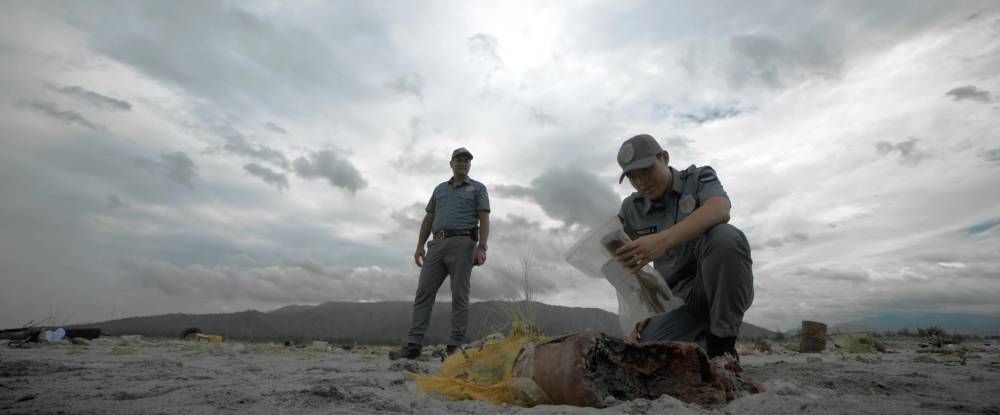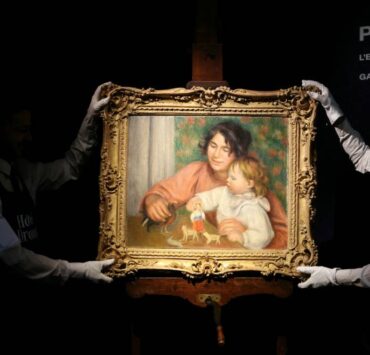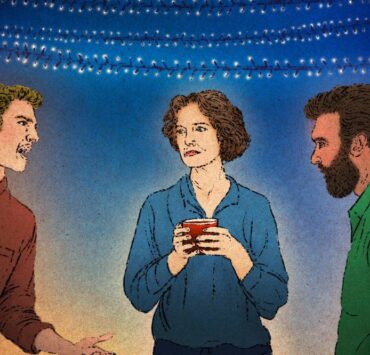In a lawless land, can anyone truly be saved?

In the Philippines, the word “salvage” functions as a paradox. While it retains its standard English definition of rescuing and retrieving something of value, local usage over time has turned it into a politically charged term referring to extrajudicial killing.
Director Lino Cayetano and writer Shugo Praico explore this contradiction in their new movie, the neo-Western “Salvageland,” which had its world premiere at the Oltre Lo Specchio Film Festival in Milan, Italy, last Nov. 11.
Using a fictional outpost near Mount Pinatubo’s bleak volcanic wasteland, they set the stage for lawlessness and summary executions. But amid violence and death, the film also asks this question: Can any semblance of justice or human value be salvaged from a place seemingly robbed of all morality?
“Sa isang banda, para sa Pinoy, ang salvageland ay tapunan. But ‘salvage’ also means to save. Sa kabila ng mga bagay na patapon at mga kawalanghiyaang nagagawa ng tao, may mapupulot pa ba tayong may kabuluhan?” Cayetano tells Lifestyle Inquirer.
Generational, ideological clash
The two main characters reinforce this theme. At the end of a dead highway is a derelict sub-police station manned by two officers—a father and a son—who stand on the opposite ends of the ideological spectrum.
Produced by Rein Entertainment and Viva Films, “Salvageland”—now open in cinemas—follows Sarge (Richard Gomez), a cynical cop nearing retirement and longing for a peaceful life. Jaded by the broken system, he turns a blind eye to injustice in the name of protecting his family. While he represents compliance and the status quo, his son, the rookie cop Jules (Elijah Canlas), is the idealistic force bent on shaking it in the name of genuine reform.
Their dynamics are tested, and their conflict magnified, when one evening a wounded woman (Cindy Miranda) arrives, crying for help. She has just escaped her abusive partner, who turns out to be the leader of a notorious crime syndicate (Mon Confiado). And he’s dead set on hunting her down.
A battle inevitably erupts. And as they get caught in a crossfire, Sarge and Jules find themselves in a quandary that will test not only their survival skills but also their principles. Should they conform to corruption for safety, or risk everything to save their conscience?
Microcosm of corruption
Knowing what’s right and wrong might sound simple, but things aren’t always black and white. And decisions aren’t made in a vacuum. It’s this moral ambiguity and complexity—which permeates just about every field, from politics and business to family—that Cayetano finds most compelling to delve into.
“We all know that stealing is wrong. But what if you’re forced to steal to save your sick kid? And what if the person you’re stealing from is evil and corrupt? Ito ‘yung masarap paglaruan,” he explains, adding that the film ultimately challenges a person’s integrity and moral autonomy.
“In a lawless place, where there’s no accountability and no one is watching you, and when you’re left to your conscience, will you still choose to do what’s good?” Cayetano says. “Minsan kahit mabuti ka, ‘pag pumasok ka, mababago ka. Kailangan mong magkaroon ng tapang na labanan ang mundo na ’yun.”
Although “Salvageland” depicts corruption on a smaller, localized scale, it still mirrors society at large. And with it comes that nagging tug of war between cynicism and optimism in the face of systemic failure. This is a feeling Canlas knows all too well.
“At some point, we’re all going to get tired,” he says. “Mapapagod ka at mapapagod ka. And the older you get, you might just start accepting the realities of life.”
“This reflects the kind of world we live in, and how it connects everything happening in our society,” adds Gomez, who’s returning to the big screen after a seven-year hiatus. “It’s about how to do good in what we do and correct the things we’re doing. Or perhaps knowing whether the good things we’re doing are actually good.”
Finding courage and clarity
Being tired, however, doesn’t necessarily—and doesn’t have to mean— giving up. “Pwedeng magpahinga muna. We’re allowed to take a break,” Canlas says. “Pwede mong balikan ang laban, as long as your principles and core as a person are intact. Life goes on, but it’s how you deal with it, and how you stand up for yourself and others.”
Because sometimes, it’s by stepping back that we find unexpected courage and clarity—a realization Miranda walked away with after shooting. “We often accept life as it is, but eventually we realize that we don’t have to settle for just bad or okay lang,” she shares. “We can do better—and all deserve the good things in life.”
And whether you come into the cinemas feeling jaded or hopeful, Canlas wants the film to inspire a discussion either way. “That’s the beauty of cinema. It can either strengthen or, who knows, rethink your beliefs,” he points out. “But now I’m being optimistic, and I want to keep it that way.”

















